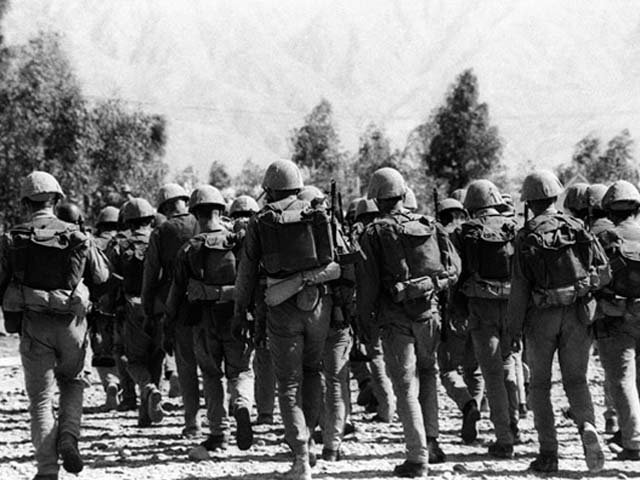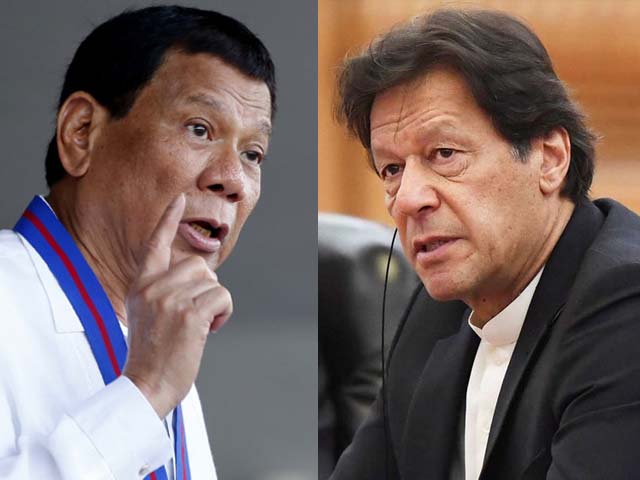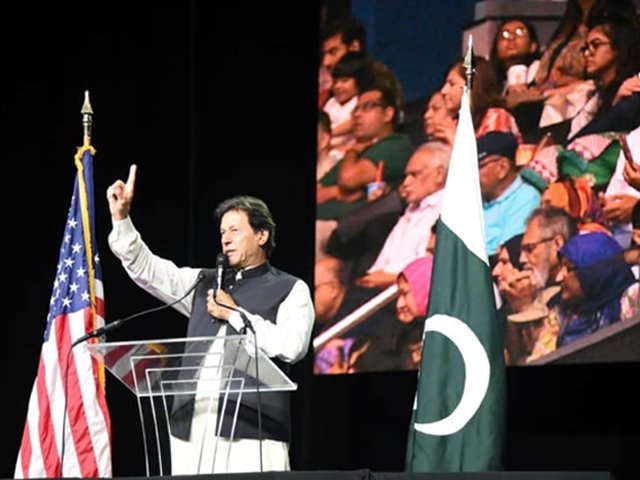
Turkish President Tayyip Erdogan and Iranian President Hassan Rouhani are seen during a joint news conference in Tehran, Iran, October 4, 2017. PHOTO: REUTERS
Iran-Turkey is not an alliance, but an incredibly realistic and meaningful partnership
Iran and Turkey are experiencing their best bilateral relations since 1979, as expand in terms of regional influence.
The two greatest imperial foes of the Ottoman Empire were Russia and Iran (Persia). While the Russian empire collapsed in 1917, the Ottoman empire in 1922 and the Iranian in 1979, the modern successor states of the Russian Federation, Republic of Turkey and Islamic Republic of Iran continue to constitute towering Eurasian powers whose influence only continues to grow.
This is not surprising in and of itself, but what is surprising is that these three great Eurasian powers continue to expand in terms of regional influence, but not at each other’s expense.
Turkey’s rapprochement with Russia continues to dominate headlines, not least because the dramatic shooting down of a Russian fighter jet by Turkey in late 2015 had the term “Russo-Turkish War” back on the tips of many tongues for the first time since the early 20th century.
However, the subsequent restoration of relations between Moscow and Ankara has not only put to rest any ideas of a new Russo-Turkish war, but the efforts to reconcile differences have transformed into something far more meaningful than a detente. Russia and Turkey are currently experiencing a burgeoning economic, diplomatic and peace-making partnership – one which both sides seek to expand further and as soon as possible.
This is not to say that Turkey and Russia are allies. There are still clear areas of disagreement, but that notwithstanding, Turkey’s economic future lies in the east, and for Ankara, Russia is both an indispensable economic partner as well as a literal and metaphoric bridge to China. In this sense, Turkey’s enthusiastic embrace of China’s One Belt–One Road (OBOR) project should also be highlighted as an important factor in bringing Moscow and Ankara closer together. The result is that in spite of the events of 2015, Russia and Turkey enjoy their best relations since the period when Ataturk’s Republic became one of the first three nations to develop formal relations with a young Soviet Union (the other two were Iran and Afghanistan).
At the same time, Turkey’s relations with Iran, in the fields of economic, security, diplomatic and now ideological cooperation, have grown throughout this same period, although they are less widely discussed.
Since the Islamic Revolution of 1979, Turkey and Iran’s relations have experienced a period of rapid fluctuation ranging from pragmatic tolerance and limited cooperation, to open hostility – albeit hostility which never could have realistically led to a military conflict.
Today, it is fair to say that Iran and Turkey are experiencing their best bilateral relations since 1979.
While the Astana Peace Process and Turkey’s gradual acceptance of the legitimate right of the Syrian government to remain in power, are often pointed to as key elements which have aided bilateral relations between Iran and Turkey, the fact of the matter is that both countries see a wider reaching potential for partnership that transcends the Syrian conflict and associated peace process.
Turkish President Recep Tayyip Erdogan’s trips to Iran are becoming ever more frequent as trade between the two countries rapidly increases. Furthermore, both countries have pledged to begin trading in national currencies, thus allowing Iran to circumvent dollar-based institutions which Washington has forced to sanction the country, while also allowing Turkey to assert financial independence from its former western partners, as part of a broader move to an almost certainly Yuan-based OBOR trading network.
Pragmatically, both countries look set to collaborate on mutual energy initiatives included the proposed ‘Persian Gas Pipeline’. Among the prospective parties to such a project, Turkey and Iran are the only states not in the European Union (EU). This means that Iran and Turkey represent the eastern flank of a project linking Eurasian gas to the European mainland.
However, the most important event of the year in respect to solidifying a long lasting Ankara-Tehran partnership happened in August last year.
On August 16th, Iran’s Chief of Staff Major General Mohammad Baqeri became the highest ranking Iranian military officer to visit Turkey since prior to the Islamic Revolution. During the meeting, both countries pledged to cooperate further on wider regional security matters beyond affirming existing commitments to cooperate against the threats of regional and international terrorist groups.
The timing was significant as in September of 2017, when Iraqi Kurds unilaterally declared independence, both Iran and Turkey worked to isolate the would-be illegal statelet in northern Iraq. Although leading Kurdish parties in Syria and Iraq are not traditionally allied, the duel threat of Kurdish ethno-nationalism in both Arab states have led to Turkey and Iran cooperating against a Kurdish threat which is increasingly pan-regional.
The Turkish construction of a border fence with Iran has been welcomed by Tehran as a mechanism, which will disallow Kurdish extremists from supplying their ethnic brethren in the two states.
Iraqi’s Kurdish region descends into political chaos in the aftermath of a would-be insurgency that was divisively crushed by Iraqi troops, with Turkish and Iranian tactical and political support. Iran and Turkey will, if anything, double-down on their support for Iraq, if Baghdad’s troops need to put an ordered end to the riots among Iraqi Kurds, who have turned on their own “leaders” and political factions.
Even before the proper outbreak of Kurdish troubles on the borders of Iran and Turkey, both countries also found themselves on the same side of the Qatar-GCC dispute, thus proving another area in which each state sees eye to eye on a burning issue of Middle Eastern diplomatic relations.
In terms of ideology and the wider war for hearts and minds, Iran and Turkey have taken a clear lead on the cause of Palestine. While Syria remains a stalwart supporter of Palestine, because of Syria’s internal war against foreign terrorists, the most widely resonating support for Palestine now comes from outside the Arab world.
Turkey as a Sunni-majority country, has taken the clear lead in offering increasingly bold criticisms of the Zionist regime which have turned Erdogan into something of a religious hero amongst Sunnis, which he always clearly wanted to be. Simultaneously, Iran has secured its place among the wider predominately Shia Islamic Resistant movement, albeit one supported by many non-Shia and even non-Muslims in countries like Syria, Lebanon and to a smaller extent, Iraq.
Rather than acting as rivals, competing for which country is a stronger supporter of Palestine (in objective terms, it would be no contest as Iran doesn’t recognise “Israel’s” legitimacy as a state while Turkey still technically does), each country instead seems both content and outwardly encouraged by a strongly united front on Palestine. This has clearly developed in the wake of Donald Trump’s declaration that Jerusalem/Al-Quds will be recognised by Washington as an Israeli capital.
Iran’s president enthusiastically participated in the Organisation of Islamic Cooperation (OIC) emergency summit on Palestine hosted by Erdogan, while both countries have vowed to spearhead a UN General Assembly resolution seeking to nullify Trump’s decision in the eyes of a genuine international quorum. The passage of such a resolution is all but guaranteed and Turkey and Iran objectively will be able to take a great deal of credit for mobilising the effort behind the resolution.
Beyond these points of unity though, there are still areas of disagreement. Turkey continues to host US nuclear weapons and NATO missiles which Iran correctly views as an objective threat to its sovereignty. Turkey is, after all, a NATO member and NATO is the most anti-Iranian military alliance in the world today.
That being said, with Turkey continuing to expand security cooperation matters with Iran, NATO is equally worried that Turkey may be growing too close to a stated “enemy”. One should not underestimate the fact that these parallel fears may offset each other. In other words, NATO may be more troubled by Turkey’s security partnership with Iran than Iran is by US weapons on Turkish soil, which among the ruling elite in Anakara are seen increasingly as a headache.
More broadly, Iran and Turkey form the core non-Arab members of the emerging Northern Bloc of Middle Eastern states. Both countries are cooperating with each other and with Iraq, and through the Astana Format, Turkey is also cooperating with Iran’s Syrian ally (albeit in a one-step-removed fashion). It is clear that Ankara and Tehran have allies in the northern part of the Middle East while countries in the Southern Bloc, including Egypt, Saudi Arabia, Bahrain, the UAE, Jordan and “Israel”, have increasingly poor relations with both of the major non-Arab states of the region.
Iran and Turkey’s partnership is therefore forged on a combination of economic and security necessity as well as similar goals of wider pan-Eurasian trading, energy and commerce initiatives, which are increasingly tied together in public by the cause of Palestine, and wider pan-Islamic leadership, which both states seem to agree upon sharing a compliment role within.
Unless and/or until Turkey leaves NATO, Iran and Turkey may not be formal allies, but in an age where few zero-sum allies exist, Turkey and Iran represent something more realistic and therefore more meaningful: they are new partners in a new Middle East and a new Eurasia.
This post originally appeared on the Oriental Review here.




COMMENTS (10)
Comments are moderated and generally will be posted if they are on-topic and not abusive.
For more information, please see our Comments FAQ